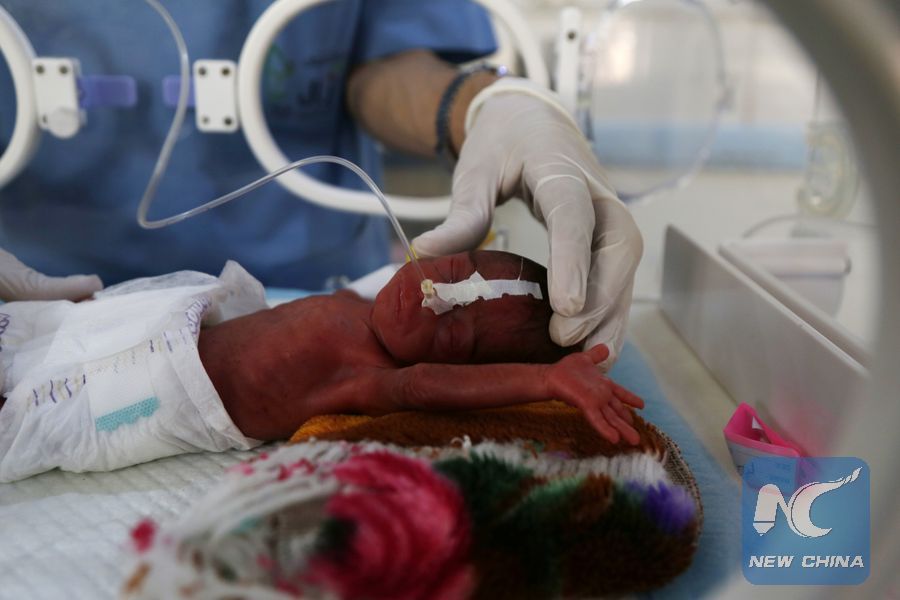
A doctor checks a prematurely-born baby in al-Sabeen hospital in Sanaa, Yemen, on June 11, 2019. Armed conflicts in Yemen have worsen the situation of women and children at birth. (Xinhua/Mohammed Mohammed)
UNITED NATIONS, July 24 (Xinhua) -- Nearly 9 million people across Yemen have been reached with emergency cash assistance by the United Nations Children's Fund (UNICEF) to help meet their urgent needs as the conflict in the country enters its fifth year.
"The cash transfers that were carried out from June 16 to July 15 is the 5th payment cycle of the Yemen Emergency Cash Transfer Project (ECTP). The payment is made on a quarterly basis and on an average, a family receives about 30 U.S. dollars paid in Yemeni Rial, to help them meet their most urgent needs," according to a UNICEF press release published on its website on Wednesday.
In August 2017, the ECTP was started in Yemen to provide 1.5 million of the most vulnerable families with cash assistance.
The cash transfers have been a "lifeline" for families whose situation has been aggravated by the current conflict that has devastated Yemen and worsened the economic situation, said the press release. "The cash assistance helps the poorest families cover their basic needs in food, health, nutrition and education, among others."
"With the money I get from the project, I buy wheat, sugar, oil and other food stuff. Although the amount is not big, it still covers living and food expenses. We eagerly wait for this amount of money just like we wait for lunch and dinner," the press release quoted Fatima Hussain Al-Tayari, a 55-year-old widow and a mother of five children who lives at the outskirts of the Yemeni capital, Sana'a, as saying.
The ECTP is funded by the World Bank through the International Development Association; funds from DFID (British Department for International Development) through the World Bank Multi-Donor Trust Fund; and with co-financing by the U.S. State Department Bureau of Near Eastern Affairs.
Most families in Yemen "have depleted their financial resources." To survive, many have been forced to resort to other means such as early marriage and child labor. Many children are fighting in a war not of their making. The emergency cash assistance helps families "stay alive," but the needs are enormous and much more needs to be done, according to the press release.
To alleviate the suffering of children, the war must end to allow for recovery and a return to normal life. In the meantime, the international community should continue to provide the resources needed to respond to the urgent needs of children across all sectors, said the press release.
The long-running conflict has caused the world's worst humanitarian crisis. Currently, some 24 million Yemenis, or 80 percent of the population, need humanitarian aid and protection, with some 20 million lacking food security, according to UN statistics.

